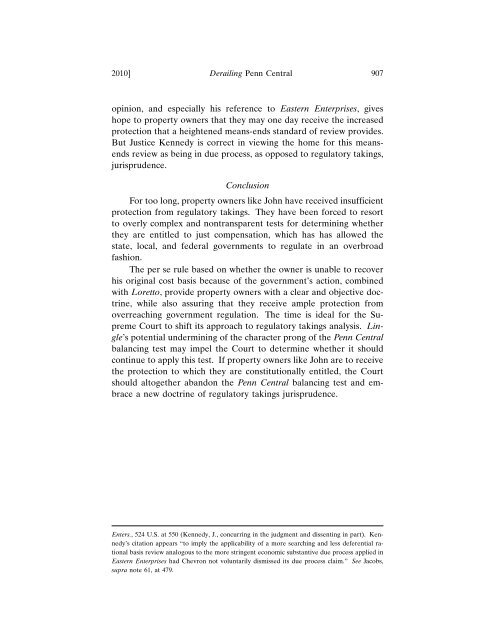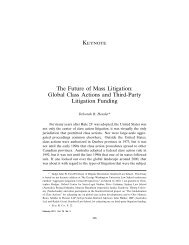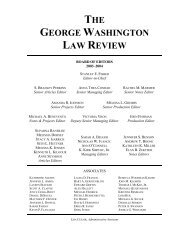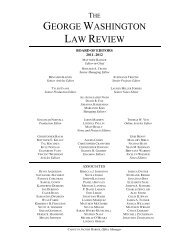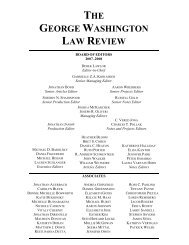View PDF - The George Washington Law Review
View PDF - The George Washington Law Review
View PDF - The George Washington Law Review
Create successful ePaper yourself
Turn your PDF publications into a flip-book with our unique Google optimized e-Paper software.
2010] Derailing Penn Central 907<br />
opinion, and especially his reference to Eastern Enterprises, gives<br />
hope to property owners that they may one day receive the increased<br />
protection that a heightened means-ends standard of review provides.<br />
But Justice Kennedy is correct in viewing the home for this meansends<br />
review as being in due process, as opposed to regulatory takings,<br />
jurisprudence.<br />
Conclusion<br />
For too long, property owners like John have received insufficient<br />
protection from regulatory takings. <strong>The</strong>y have been forced to resort<br />
to overly complex and nontransparent tests for determining whether<br />
they are entitled to just compensation, which has has allowed the<br />
state, local, and federal governments to regulate in an overbroad<br />
fashion.<br />
<strong>The</strong> per se rule based on whether the owner is unable to recover<br />
his original cost basis because of the government’s action, combined<br />
with Loretto, provide property owners with a clear and objective doctrine,<br />
while also assuring that they receive ample protection from<br />
overreaching government regulation. <strong>The</strong> time is ideal for the Supreme<br />
Court to shift its approach to regulatory takings analysis. Lingle’s<br />
potential undermining of the character prong of the Penn Central<br />
balancing test may impel the Court to determine whether it should<br />
continue to apply this test. If property owners like John are to receive<br />
the protection to which they are constitutionally entitled, the Court<br />
should altogether abandon the Penn Central balancing test and embrace<br />
a new doctrine of regulatory takings jurisprudence.<br />
Enters., 524 U.S. at 550 (Kennedy, J., concurring in the judgment and dissenting in part). Kennedy’s<br />
citation appears “to imply the applicability of a more searching and less deferential rational<br />
basis review analogous to the more stringent economic substantive due process applied in<br />
Eastern Enterprises had Chevron not voluntarily dismissed its due process claim.” See Jacobs,<br />
supra note 61, at 479.


